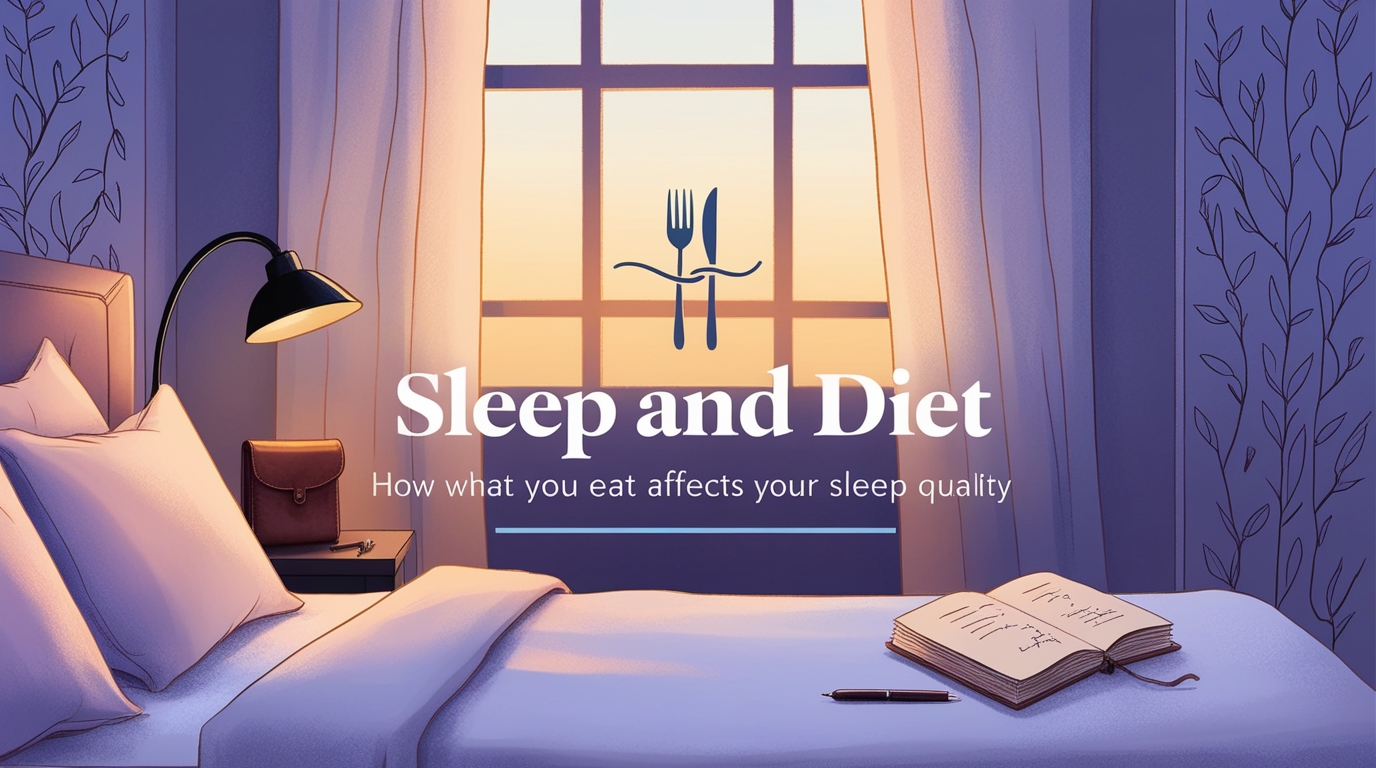Getting a good sleep is also very important for our overall health and well-being. It helps our bodies recover, boosts our mood, and improves our focus. Unfortunately, many people struggle with sleep problems, leading to tiredness and irritability during the day. While various factors contribute to sleep quality, one important aspect that often gets overlooked is diet. The food we eat can greatly affect how well we sleep. In this blog, we’ll explore how nutrition influences sleep and provide simple tips to help you improve your sleep quality through diet.
Know more about diets which help to improve your health quality click here.
How Diet Affects Sleep
What we eat can impact our sleep in several ways:
- Hormones: Certain foods can help regulate hormones that control sleep, such as melatonin and serotonin. Melatonin signals your body when it’s time to sleep, while serotonin helps you feel relaxed.
- Digestion: Eating heavy or rich foods close to bedtime can lead to discomfort, making it harder to fall asleep. A balanced diet can prevent digestive issues that disrupt rest.
- Blood Sugar Levels: Foods that cause spikes and drops in blood sugar can affect your sleep. Eating balanced meals helps keep your blood sugar stable, reducing the chances of waking up during the night.
Foods That Promote Better Sleep
Here are some of the foods that will help you sleep better:
Complex Carbohydrates
Whole grains, such as brown rice, quinoa, and oatmeal, are rich in complex carbohydrates that help produce serotonin. This hormone can make you feel more relaxed and ready for sleep.
- Tip: Try having a bowl of oatmeal with a sprinkle of cinnamon as a warm bedtime snack.
Lean Proteins
Foods like chicken, turkey, and fish are high in protein and contain tryptophan, an amino acid that helps produce melatonin. Tryptophan can enhance sleep quality and make you feel sleepy.
- Tip: Include a serving of lean protein in your dinner to help promote a good night’s sleep.
Fruits and Vegetables
Fruits and vegetables, especially those high in vitamins and minerals, can support overall health and improve sleep quality. Bananas, cherries, and kiwis are particularly beneficial for sleep.
- Tip: Enjoy a banana or a handful of cherries before bed as a tasty snack.
Dairy Products
Dairy foods such as milk, yogurt, and cheese are one of the good sources of calcium, which help the brain to use tryptophan to make melatonin. Warm milk is a well-known sleep aid for a reason!
- Tip: Drink a small glass of warm milk or have yogurt before bedtime for a calming snack.
Nuts and Seeds
Nuts and seeds, such as almonds, walnuts, and flaxseeds, are highly filled with magnesium. Magnesium has been linked to improved sleep quality and helps relax the muscles and calm the nervous system.
- Tip: Keep a small handful of nuts as a quick snack in the evening.
Herbal Teas
Certain herbal teas, like chamomile, lavender, and valerian root tea, have calming effects that can help you relax and prepare for sleep.
- Tip: Sip on a cup of chamomile tea to unwind as part of your nighttime routine.
Foods to Avoid for Better Sleep
Just as some foods can promote sleep, others can disrupt it. Here are some foods to limit or avoid, especially close to bedtime:
- Caffeine: Found in coffee, tea, chocolate, and some sodas, caffeine is a stimulant. Having it late in the day can keep you awake at night.
- Alcohol: While alcohol may help you fall asleep faster, it can disrupt your sleep cycle and lead to restless nights. It’s best to limit alcohol consumption in the evening.
- Spicy Foods: Spicy foods can cause heartburn or indigestion, making it uncomfortable to fall asleep. Stay away from heavy or spicy meals close to bedtime.
- High-Sugar Foods: Foods high in sugar can lead to energy spikes and crashes, which may disturb your sleep. Try to limit sugary snacks and desserts in the evening.
- Heavy or Rich Foods: Eating large meals or rich foods before bed can lead to discomfort and disrupt sleep. Choose lighter options for your evening meals.
Tips for a Sleep-Friendly Diet
To increase your sleep quality, consider some helpful tips:
- Regular Meals: Establish a regular eating schedule and try to finish your last meal at least 2-3 hours before bedtime. This will help your body to digest food properly.
- Balanced Plates: Aim for a balanced diet that includes a variety of foods. Combine complex carbohydrates, lean proteins, healthy fats, and plenty of fruits and vegetables in your meals.
- Smart Snacking: If you need a snack before bed, choose something light and sleep-friendly, like a banana, a small serving of nuts, or yogurt.
- Stay Hydrated: Drink enough water during the day, but limit fluids close to bedtime to avoid nighttime trips to the bathroom.
- Listen to Your Body: Pay attention to how different foods affect your sleep. Everyone’s body reacts differently, so find what is best and more helpful for you.
When to Seek Professional Help
While diet can play a significant role in improving sleep, it’s important to remember that it’s not a substitute for professional help. If you continue to experience sleep issues, consider talking to a healthcare provider or sleep specialist. They can offer guidance and support tailored to your needs.
Conclusion
What you eat can greatly help your sleep quality. By incorporating sleep-promoting foods into your diet and avoiding those that can disrupt sleep, you can enhance your chances of enjoying a restful night. A healthy diet is not only important for maintaining a healthy weight; it also plays a vital role in how well you sleep.
So, the next time you plan your meals, think about how your food choices might affect your sleep. With a few mindful adjustments, you can experience better sleep and feel more refreshed and alert during the day. Sweet dreams!





